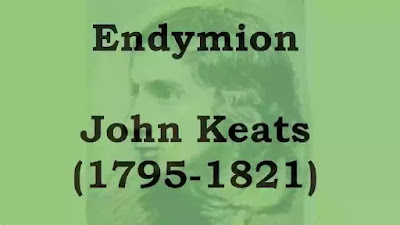Also Read
Summary
Endymion: It is an allegorical prose play (1592) by Lyly acted in 1591. The play is an eulogy of Elizabeth who is identified with Cynthia whom Endymion loves respectfully. Endymion abandons Tellus (the earth) in consequence of a hopeless passion for Cynthia (the moon). Tellus conspires with the witch Dipsas against Endymion who is sent to sleep for forty years. His friend Eumenides arrives in Thessaly, the land of enchantment in search of the charm which will awaken his, friend. He reaches the bank of the prophetic spring of which the bed is visible only to faithful lovers. Eumenides, who is the faithful and unfortunate lover of Semele, a lady of Cynthia's Court, hesitates long. Shall he ask for the love of Semele or for the deliverance of Endymion? At last friendship and duty prevail over love. And he learns that a kiss from Cynthia will give back the life of Endymion. Cynthia breaks the spell and releases Endymion with a kiss. After a sleep of forty years, Endymion, thanks to the kiss, recovers his youth and the right to continue his respectful courtship. Tellus is punished for her treachery and condemned to imprisonment in a lonely castle under the charge of Corsites.
Critical Analysis
The dramatic element in the play is slight. The allegory perhaps relates to the rivalry between Elizabeth (Cynthia) and Mary Queen of Scots (Tellus) and the favor of Elizabeth for Leicester (Endymion). This is supplemented by subordinate allegories in the quarrel of the witch Dipsas and her husband Gergon (The Earl of Shrewsbury) and the relation of Eumenides (perhaps Sir Sidney) with Semele (perhaps Lady Rich).
Endymion has the merit that Lyly stages in it one of the most poetic of ancient myths. The allegory is, however, more complicated than those of earlier plays and more difficult to elucidate. Lyly inaugurates the romantic comedy in which love (sincere and sublimated) is the theme. The main love theme is contrasted with physical passion of Tellus and Corsites. This variety is the characteristic of romantic comedy. The boasting and pedantry of Sir Tophas produce laughter. The romantic theme of friendship is also stressed. It is high comedy because laughter here is serious and intellectual.
The play is written in a kind of prose known as euphemistic. It is artificial, witty, graceful and refined. The conversation between Endymion and Eumenides in the beginning of the play is a good illustration of Euphuism.
